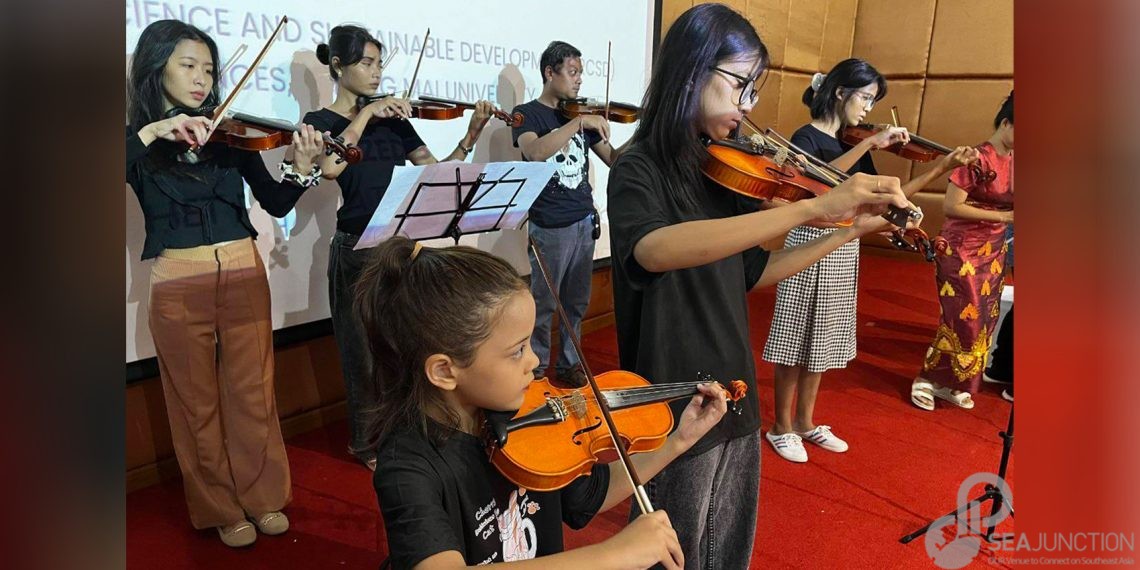
Children play in an orchestra set up by a refugee music teacher in Me Sot.
The typical image of a refugee is a poor person with their hands out asking for aid. The Burmese refugees in Mae Sot on the Thai-Myanmar border defy that stereotype. Many are middle-class, educated urbanites with skills and plenty of initiative.
After standing up to the Burmese military and suffering for it, they left everything and fled for their lives to Mae Sot where they continued their struggle. Despite intimidation, exploitation by some Thai authorities, and living in fear without documentation, they have achieved a lot in under two years. Their purpose is to support their community and the revolution in a variety of ways through their resilience, commitment, ability and innovation.
Some refugees have set up businesses such as cafes, restaurants, bars, shops, hairdressers, a farm and cross-border trade. While they are for-profit, they also provide employment for other refugees and donate to the most vulnerable.
One café owner said, “If I am lucky, I break even but the café gives refugees employment, keeps them occupied and is a place where Burmese can meet and relax.”
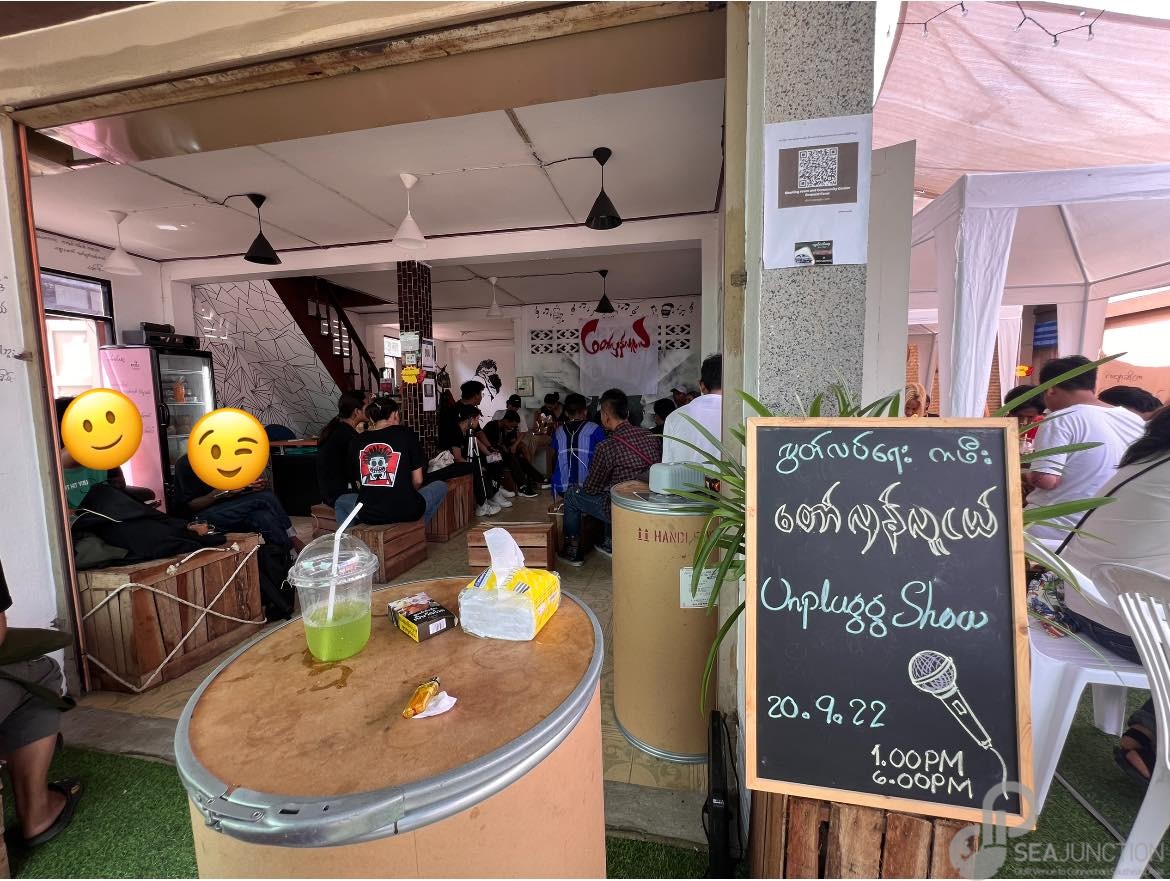
A café set up by a refugee is a place to meet and relax.
They also contribute to the town by purchasing supplies and providing services. Unfortunately, Thai authorities don’t see it this way and don’t make life easy. The refugee entrepreneurs need to partner with Thais and compensate Thai authorities for their lack of legal documents.
Other refugees in Mae Sot have formed community-based organizations (CBOs), including a 15-baht meal enterprise that sells about 400 meals a week and gives away a further 100. There is also a free shop stocked with donated items.
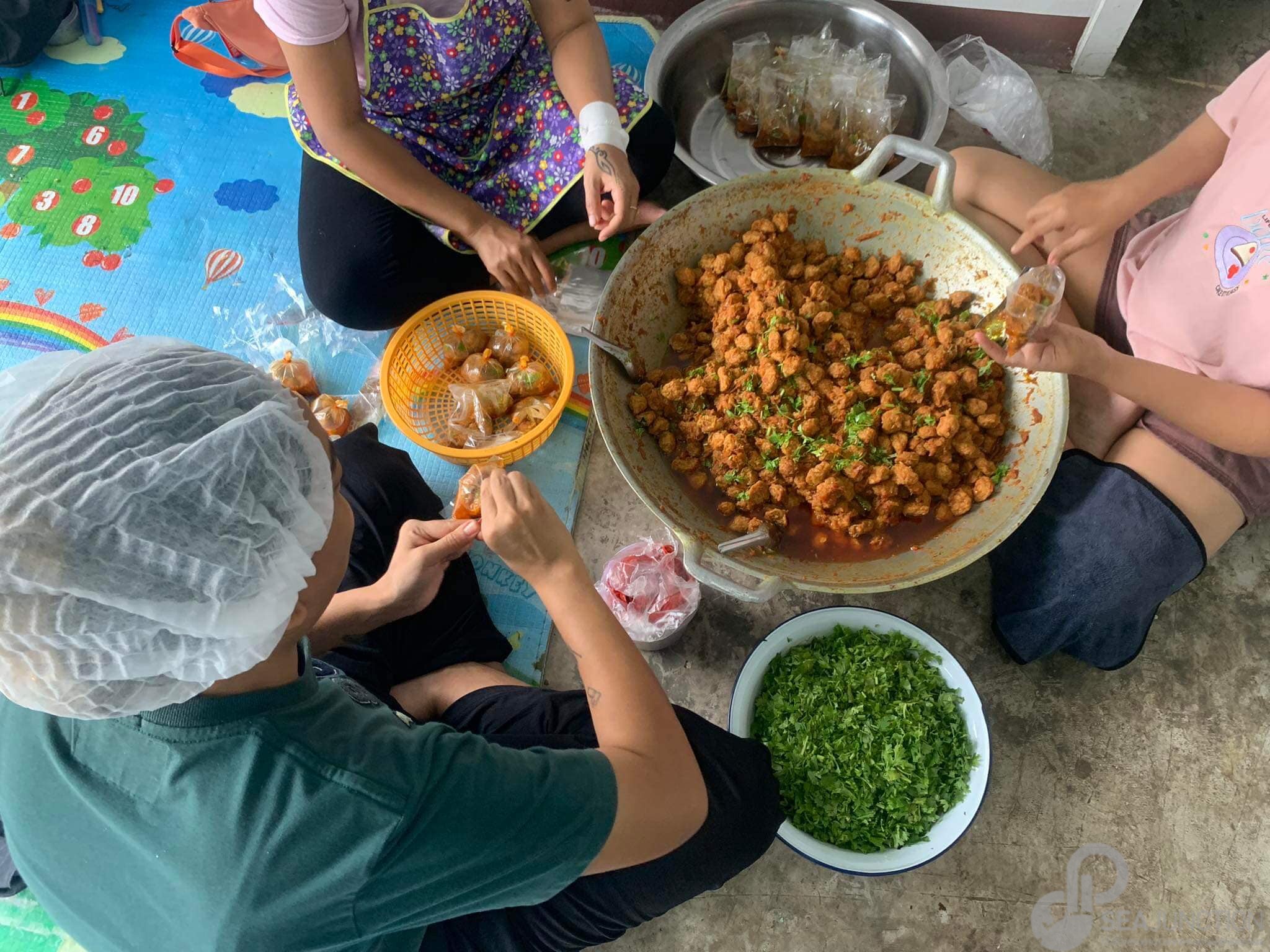
Cooks prepare 15-baht meals.
Many refugees arrive in Mae Sot with nothing, so some organizations have set up “safe houses” where their basic needs are catered for. To support the most vulnerable, CSOs provide free basic monthly food rations. Others have started bookshops and a library. At least one informal refugee school has been set up, funded by personal donations. Refugees even have a radio station, which airs programs twice a week.
Both child and adult refugees arrive suffering from trauma, but venues for activities such as sport, yoga, art, music and dance give psychosocial support and help the healing process. A Burmese professional violinist has started an orchestra and even teaches music in nearby Thai schools. One’s identity is linked to what one does. As the music teacher said, “Now I am a violinist again!”
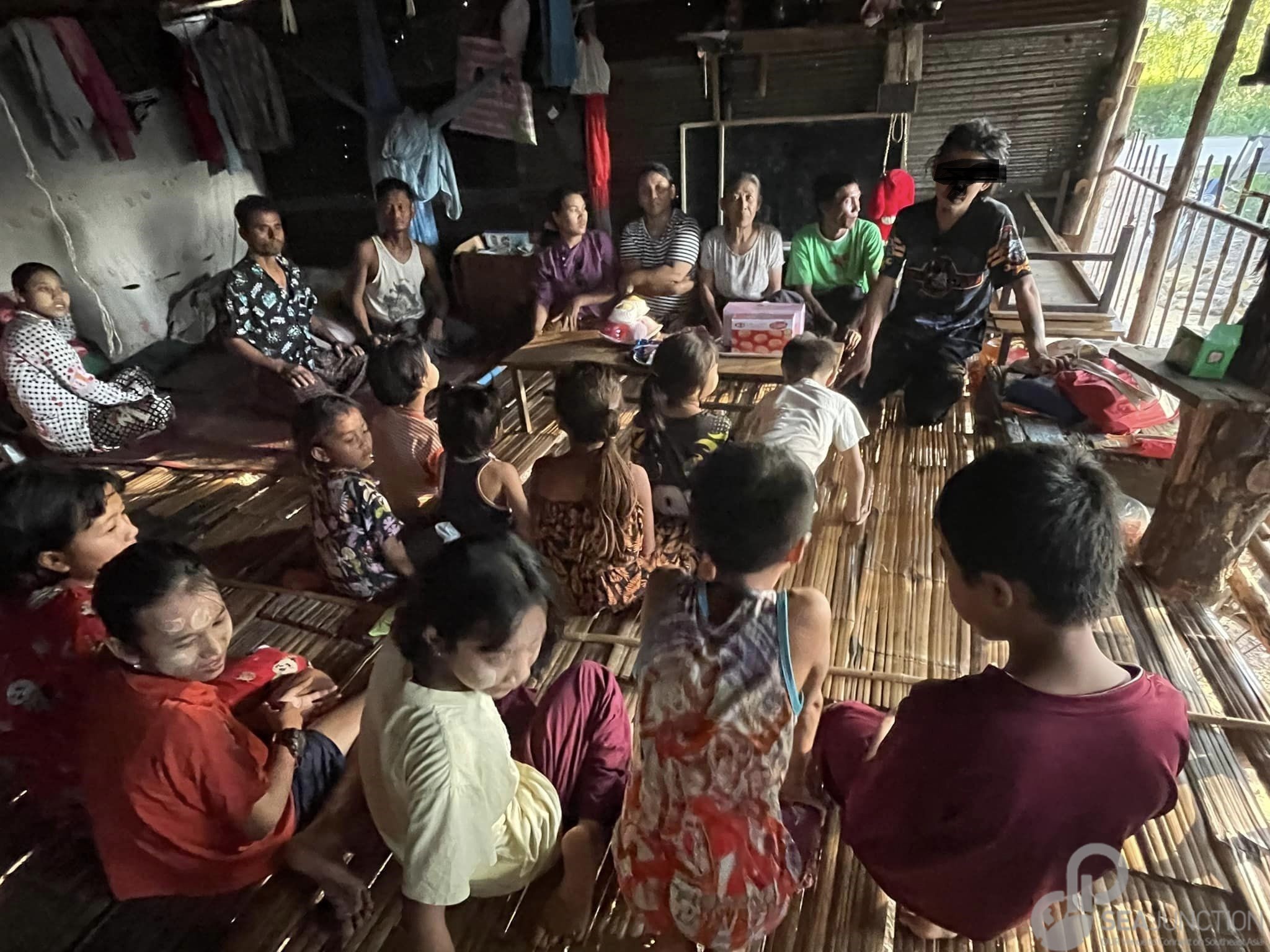
A school set up by an asylum seeker in Mae Sot. / Our School
Another refugee said, “Through the challenges and suffering, I found a renewed purpose in life.”
Importantly some organizations also support internally displaced people (IDPs) from Myanmar without international funding.
The psychosocial support provided by CSOs and CBOs also covers women suffering trauma from gender-based violence.
Many of these refugees have been through hell, which makes their actions even more impressive. Their journeys follow a similar pattern.
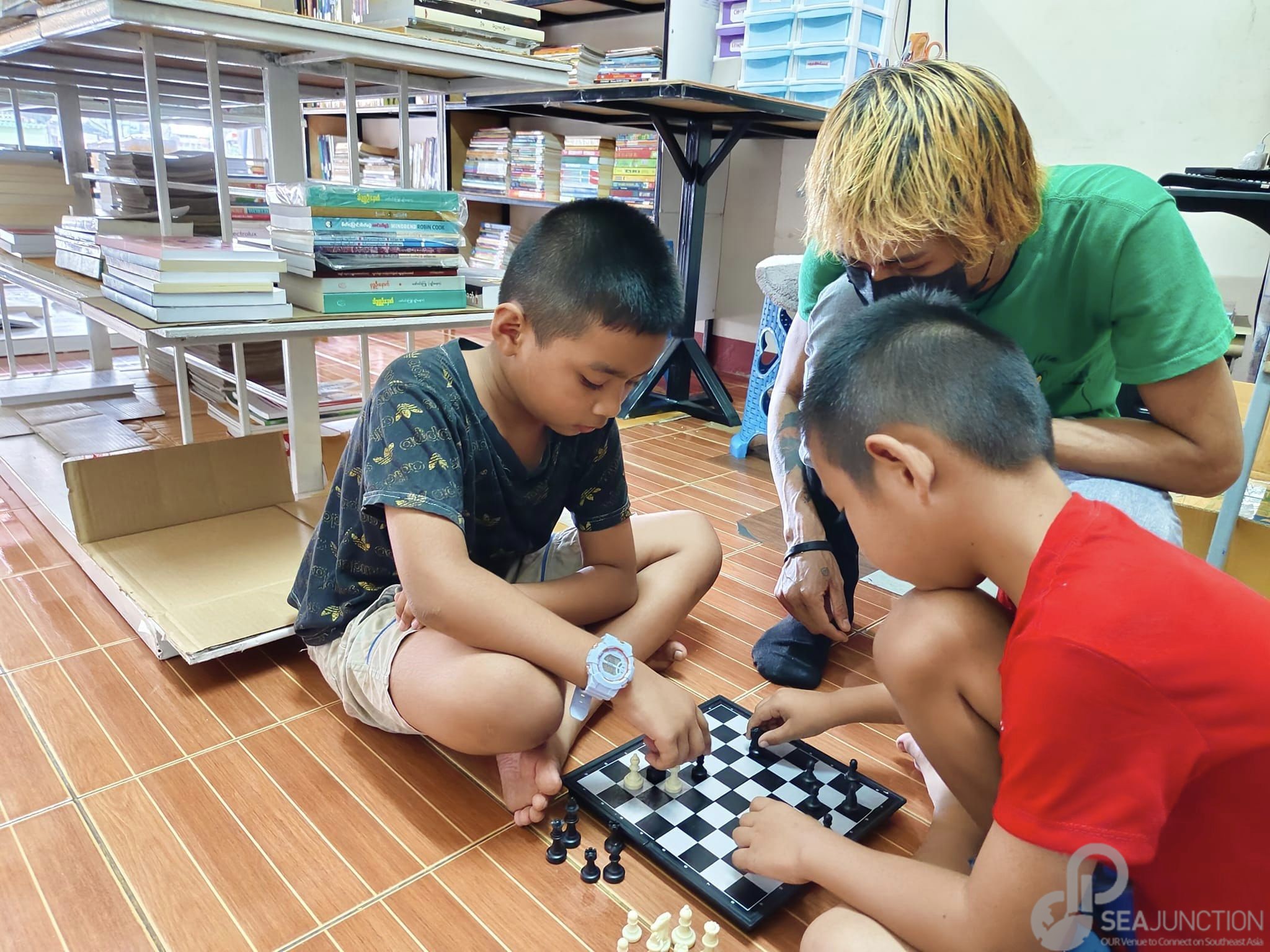
A bookstore and library set up by refugees
“I worked in the music business and then after the coup we protested peacefully until the military started killing us,” said one. “Then I ran to the jungle and was a frontline fighter until my friend was killed right next to me. After that, I fled to Mae Sot.”
Those who chose combat had no desire to fight, said one female fighter.
“However, as the military council’s crackdown intensified and peaceful protestors were met with brutality, I made the difficult decision to join the urban guerrilla movement,” she explained.
Another taught computing in Mandalay but joined street protests after the coup, and later became an urban guerilla. Following military training, she fought with a People’s Defense Force (PDF) group. Several of her comrades were killed so, suffering from post-traumatic stress disorder (PTSD), she escaped to Mae Sot. Though still needing medication for her trauma, she has started several enterprises to support other refugees.
“It helps with my PTSD,” she said.
One of her enterprises is a school that has grown quickly to meet demand.
“Our School” started with 13 students from nine families known as the “Nine Famili”. Over time, the number of students has grown to around 100 across two branches of the school. “Initially, there was only one teacher – me. However, now there are six volunteer teachers who contribute their knowledge and expertise. Additionally, three doctors take turns providing health knowledge and care.”
She achieved all this while suffering from PTSD!
One artist has produced a book of his drawings and diary from his time in Yangon’s Insein prison (available to buy from SEA Junction in Bangkok), recording a very personal account of suffering. He drew on small scraps of paper that were later smuggled out of the prison.
The trauma suffered by refugees is compounded by Thai officials, who treat asylum seekers as illegal migrants and harass and exploit them. Instead, refugees should be issued with a one-year temporary work permit, which would also give authorities more control as well as tax income. In this win-win situation, the only losers would be those exploiting the refugees.
The refugee enterprises have achieved a lot with no external funding but could achieve a lot more with just a little money. The international community should divert some funds from United Nations agencies to these community-based enterprises as a more cost-effective solution.
One refugee summed up their commitment: “Together, we face the challenges, share our burdens, and stand united in our struggle. We, the people affected by the coup, are bound together by our shared experiences and determination to bring about positive change.”
With impressive, strong, committed innovative youth like this, there is hope for the future of Myanmar.
Paul Greening is an ex-UN senior staff officer with over 20 years of experience in six Asian countries working for six UN agencies and four INGOs. He worked in Sittwe, Rakhine State for the International Organization for Migration (IOM) from 2017 to 2020 and has been living in Mae Sot for two years.


